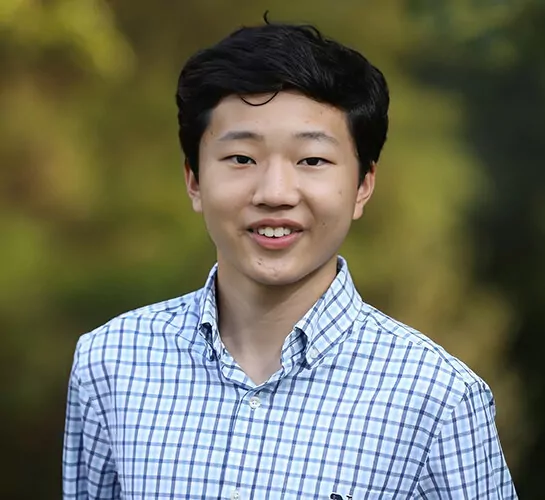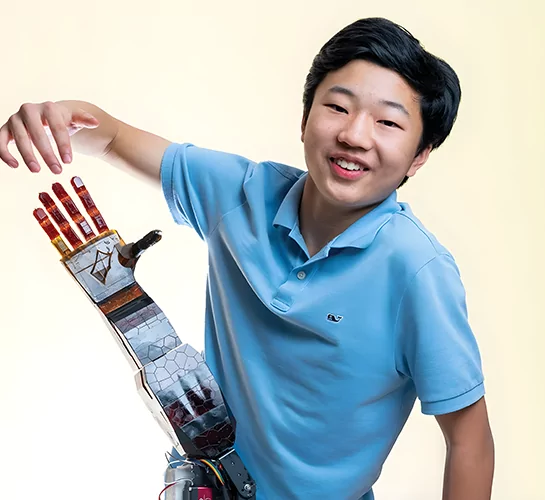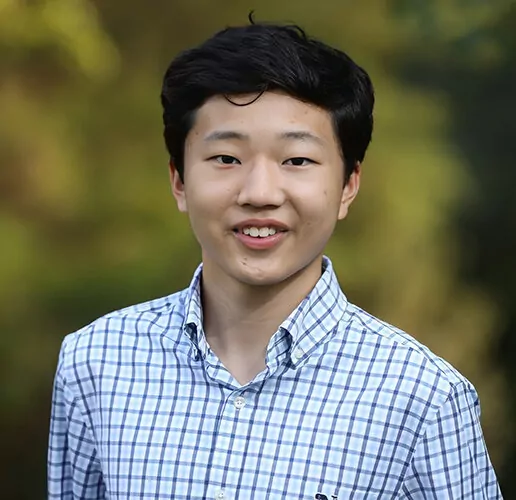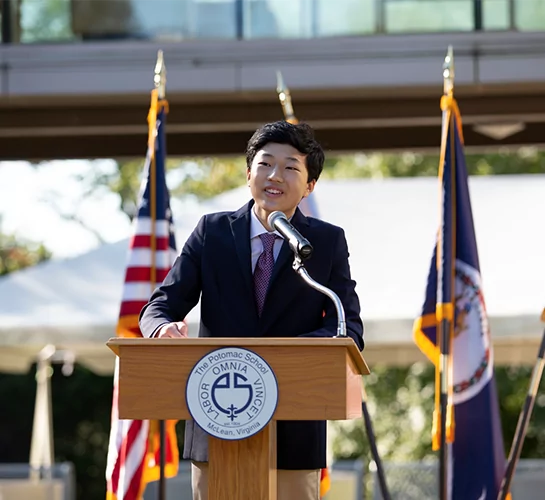Deeper Dive
Some of the most urgent challenges in upper limb prosthetics include the lack of effective control systems, the high-risk brain surgery associated with mind-controlled limbs, and incredibly prohibitive costs. As a result, adoption rates remain low despite the significantly increased quality of life. To address these concerns, my project developed the world’s first ultra-low cost, noninvasive, transhumeral neuroprosthesis. The physical blueprints of the prosthesis itself are the product of more than 75 design iterations; with the help of funding and mentorship from PolySpectra, Inc., a laser-forged cyclic olefin resin-based polymer was employed to achieve maximum durability. To address the shortcomings of current noninvasive neural monitoring techniques, I worked alongside Dr. Ji Liu of Stony Brook University to leverage artificial intelligence (AI), creating a synthetic “brain” to decode biological neural hardware.
The process to generate the AI algorithm was guided by two underlying goals: (1) to improve overall system performance by combining discrete models using a prediction voting scheme, and (2) to favor model diversity within these new neural network ensembles, as opposed to individual model performance. The final model involves over 23,000 lines of handwritten code and seven completely novel sub-algorithms. It also employs a unique diversified hierarchical structure, far exceeding the performance of current, gold-standard AIs, and is entirely scalable. The final deep learning system behaves as a dynamic, fully-embedded algorithm, designed to tailor itself to the neural characteristics of its online operator.
My novel mind-controlled prosthesis outperformed the world’s most advanced invasive prosthetics, costing more than US$450,000, across industry-standard performance metrics—all despite a total manufacturing cost of just US$300. These promising results suggest the possibility for wide application as a compelling, accessible alternative to current prosthetics; this device has the potential to improve the lives of amputees across the globe.



